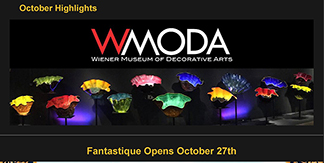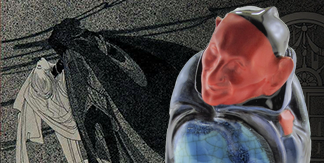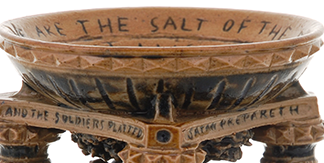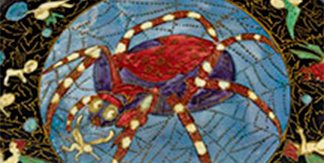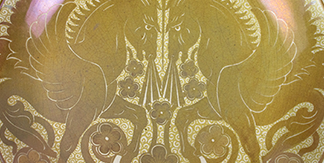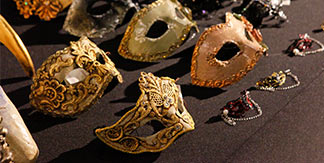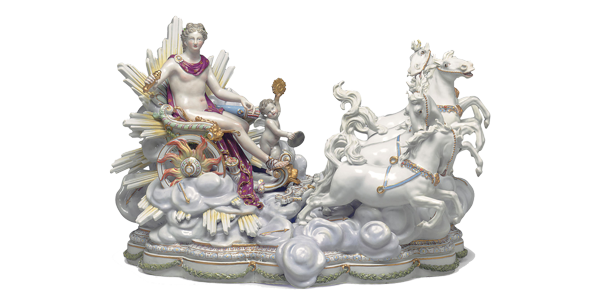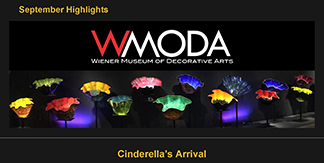It was Fantastique
We had a Fantastique event at WMODA on Saturday, October 27! A Bacchanalian god, goddess and beautiful nymphs mingled with spooky witches and a big cat! Many of the visiting artists, volunteers and staff were in costume for the occasion which added a lot of fun to our fantasy theme.
A Spooky Story
For Halloween we are highlighting the spookiest pieces in the new Fantastique exhibition. The Spook figure was modeled by Harry Tittensor for Royal Doulton in 1916. Spook, derived from Dutch, is a synonym for a ghost or an apparition. The Wiener collection must be haunted as the Spook appears in
Salt of the Earth
Elaine Cooper, who passed away this year, made many firm friends around the world as a passionate collector of Royal Doulton, particularly salts. She shared her enthusiasm for collecting on several Collectors Cruises and published a reference book on Doulton Open Salts in 2009. Elaine’s book on the subject features
Daisy’s Dark Side
Most visions of Fairyland conjure up images of ethereal sprites with diaphanous dresses and gossamer wings dancing around toadstools in an enchanted wood. However, Wedgwood’s Fairyland Lustre by Daisy Makeig-Jones features imps, goblins, demon trees, and spiders that eat babies. Daisy’s denizens of Fairyland tend to be grotesque and freakish
As Good as Gold
Two glistening golden luster plaques depicting fabulous creatures greet visitors at the entrance to our new exhibit Fantastique. They are the work of William de Morgan, a Victorian Arts & Crafts designer who revived the ancient art of metallic luster painting on pottery. De Morgan often escaped into an imaginary
Myths & Meissen
Porcelain was so desirable that it was once known as ‘white gold’ and was traded around the world by the Chinese, who perfected the art 2,000 years ago. The method of making it was unknown to Europeans until the Meissen factory near Dresden began making ‘true’ porcelain in 1710. Meissen
Art Deco Glass
Art Deco Glass René Lalique is the most celebrated Art Deco designer in glass. He began to experiment with decorative glass in the early 1900s and opened a store in the famed Place Vendome in 1905. There he sold jewelry and decorative glass objets d’art inspired by his lifetime love

